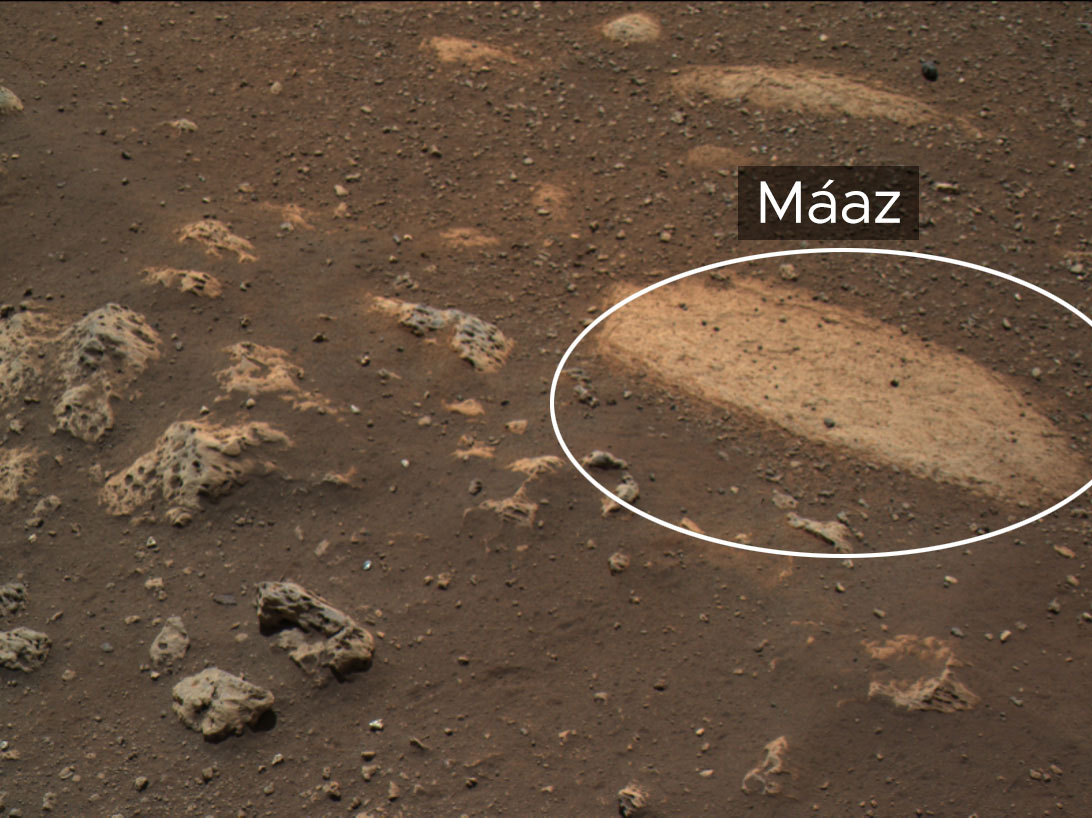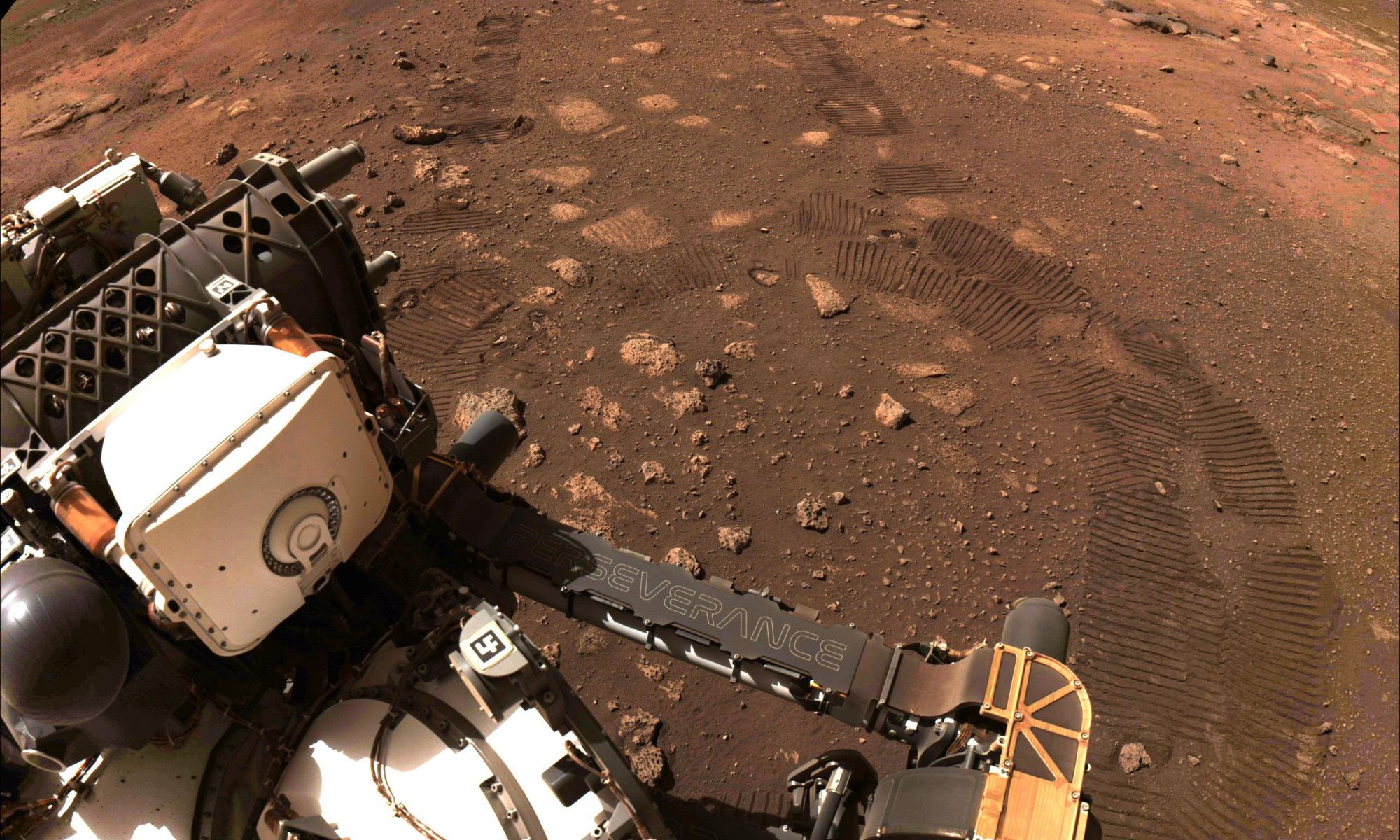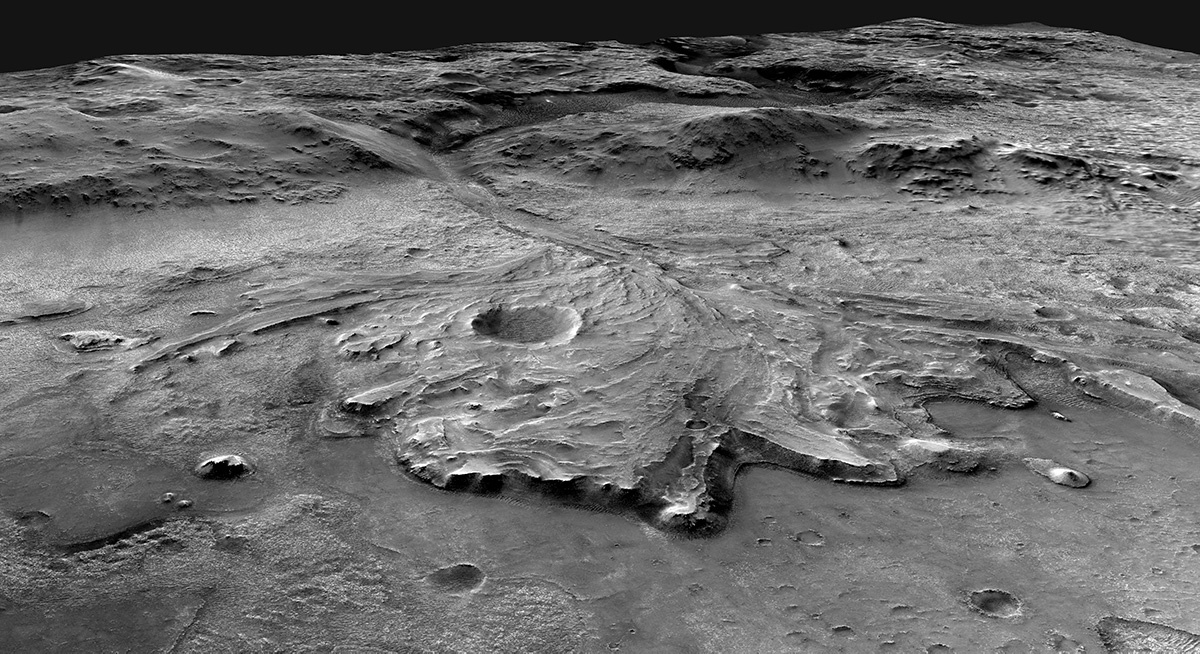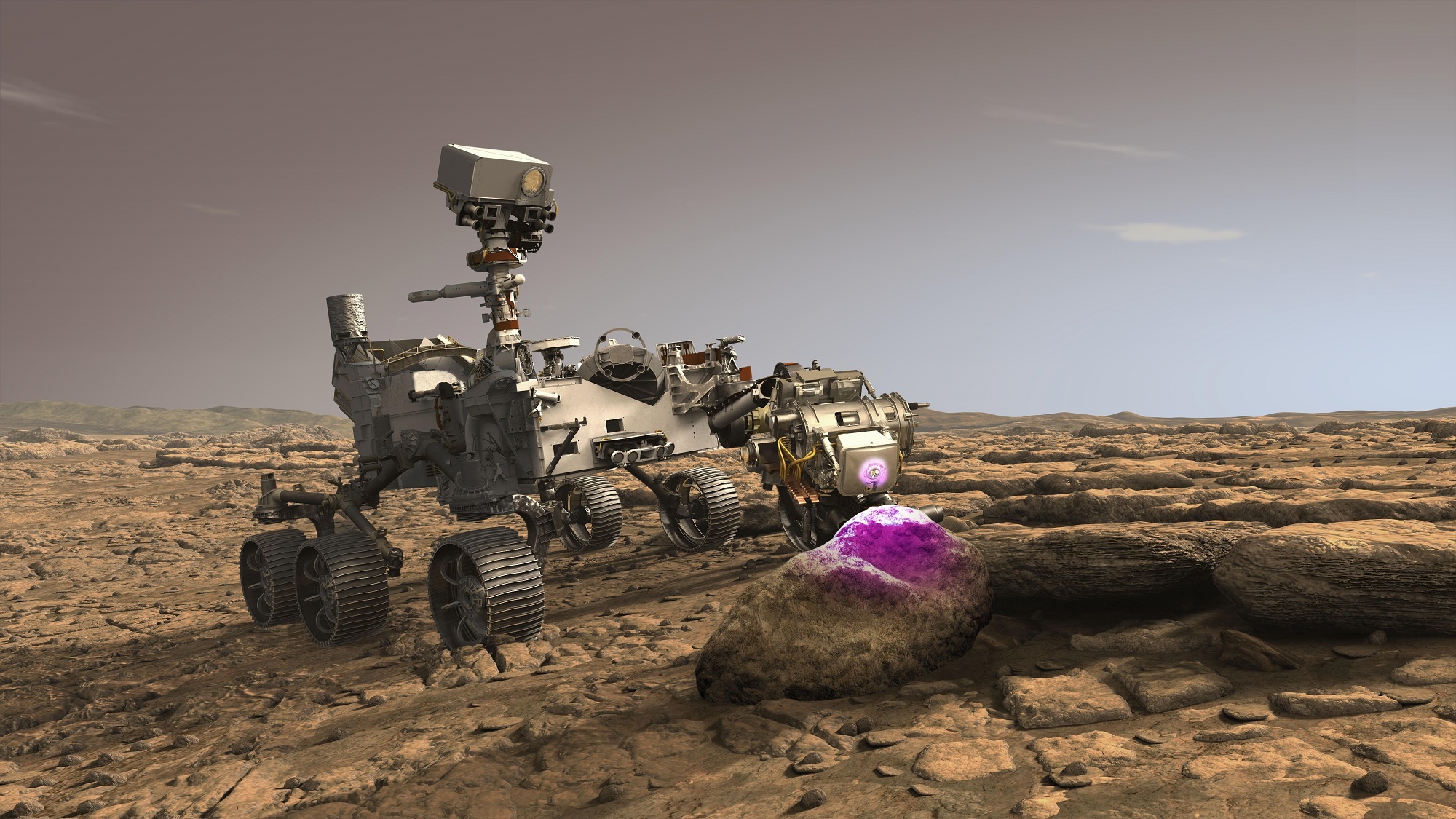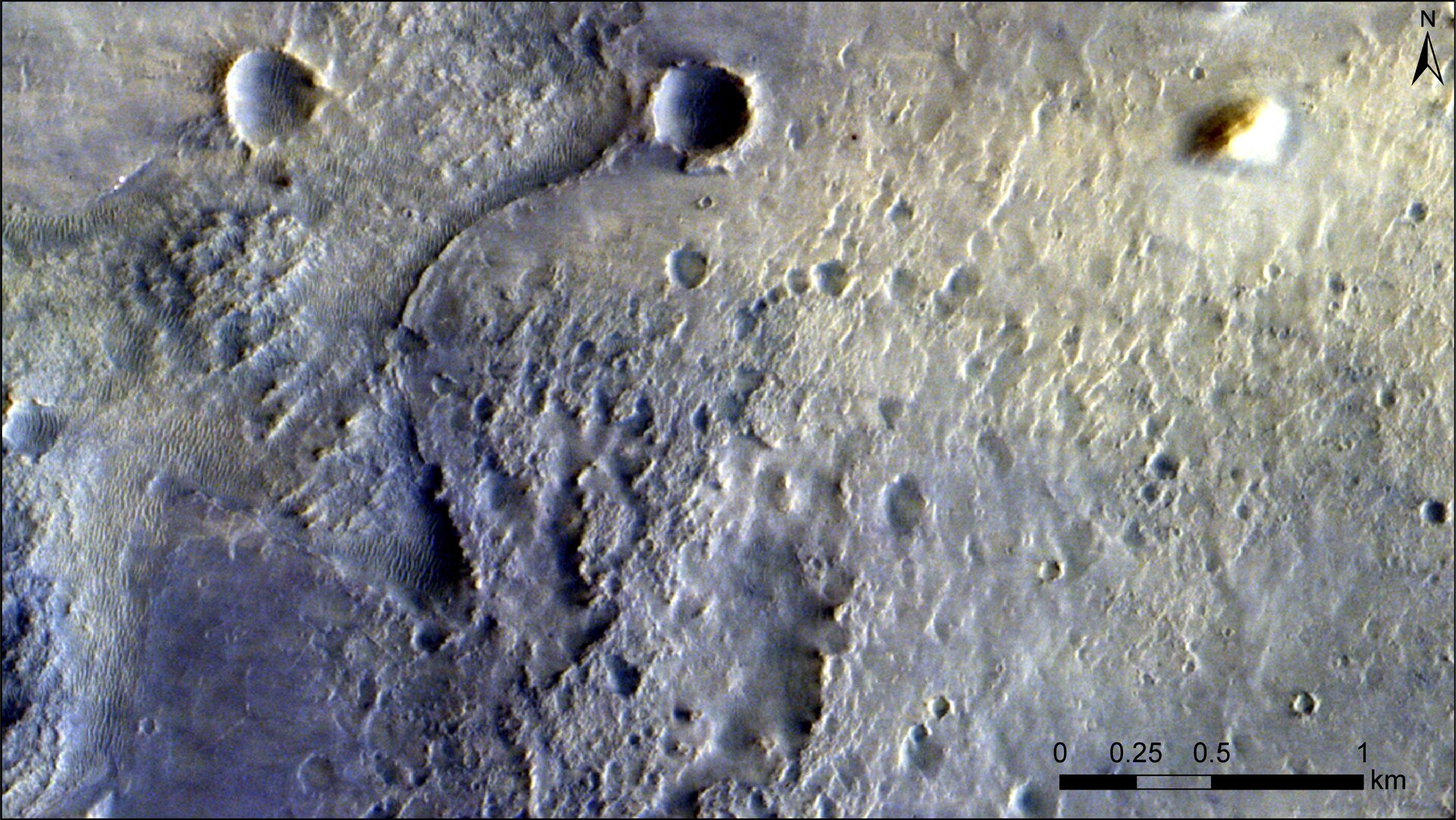On Feb. 18th, 2021, after spending six months in transit, the Perseverance rover landed in the Jezero Crater on Mars. By March 4th, it began driving short distances and calibrating its instruments in preparation for all the science operations it will conduct. Most recently, Perseverance began studying its first scientific target, a rock that has been named “Máaz” – the Navajo word for “Mars.”
Continue reading “Rocks and Other Features at Perseverance’s Landing Site are Getting Navajo Names”Perseverance has Started Driving on Mars
On February 18th, 2021, NASA’s Perseverance rover landed in the Jezero Crater on Mars. Over the next two years of its primary mission, this robotic mission will carry on in the search for past life on Mars, obtaining soil and rock drill samples that will be returned to Earth someday for analysis. And as of March 4th, the rover conducted its first drive, covering 6.5 meters (21.3 feet) across the Martian landscape.
Continue reading “Perseverance has Started Driving on Mars”Microbes Found That Survive on the by-Products of Radioactive Decay

In addition to investigating the big questions about life in our Universe (origins, evolution, distribution, etc.), one of the chief aims of astrobiologists is to characterize extraterrestrial environments to determine if life could exist there. However, there are still unresolved questions about the range of conditions under which life can survive and thrive. Placing better constraints on this will help astrobiologists search for life beyond Earth.
To get a better understanding of how ecosystems can exist beneath the ocean floor (so far from the Sun) a team of researchers led by the University of Rhode Island’s Graduate School of Oceanography (GSO) conducted a study on microbes in ancient seafloor sediment. What they found, to their surprise, was that these lifeforms are sustained primarily by chemicals created by the natural irradiation of water molecules.
Continue reading “Microbes Found That Survive on the by-Products of Radioactive Decay”New Perspective of Jezero Crater Shows the Path Perseverance Could use to Navigate
On February 18th, 2021, NASA’s Perseverance rover set down on the surface of Mars. During the next two years of its primary mission, the rover will search the Jezero crater (where it landed) for evidence of past life on Mars. This will consist of collecting soil and rock samples from the preserved delta feature that formed billions of years ago from sediments deposited by flowing water.
The question is, where should it look for this possible evidence? A possible route the rover will take during its primary mission is shown in a series of recent images provided by NASA and the US Geological Survey (USGS). As illustrated in the image below, this path would take it from the cliffs that form the edge of the delta, up and across its surface towards possible “shoreline” deposits, and up to the rim of the crater.
Continue reading “New Perspective of Jezero Crater Shows the Path Perseverance Could use to Navigate”What Happens if Perseverance Finds Life on Mars?
It all happened so fast! On Thursday, February 18th, NASA’s Perseverance rover set landed in the Jezero crater on Mars and almost immediately transmitted its first image of the Martian. This was followed by photos from the Mars Reconnaissance Orbiter and footage taken by the rover’s Entry, Descent, and Landing (EDL). Then there was the panoramic video, a sound recording, and deployed its Ingenuity helicopter, all in the space of a week!
But that’s nothing compared to what happened next. Shortly after the rover started drilling into the floor of the Jezero crater, Perseverance found evidence of fossilized bacteria! The search for life on Mars finally struck paydirt! Okay, that didn’t happen… Not yet, anyway. But what if it does? After all, one of Perseverance‘s main objectives is to search for evidence of past life on Mars. What will be the impact if and when it finds it?
Continue reading “What Happens if Perseverance Finds Life on Mars?”Perseverance Seen From Space by ESA’s ExoMars Orbiter
A little over a week ago (February 18th, 2021), NASA’s Perseverance rover landed in the Jezero crater on the surface of Mars. In what was truly a media circus, people from all over the world tuned to watch the live coverage of the rover landing. When Perseverance touched down, it wasn’t just the mission controllers at NASA who triumphantly jumped to their feet to cheer and applaud.
In the days that followed, the world was treated to all kinds of media that showed the surface of Mars and the descent. The most recent comes from the Trace Gas Orbiter (TGO), which is part of the ESA-Roscosmos ExoMars program. From its vantage point, high above the Martian skies, the TGO caught sight of Perseverance in the Jezero crater and acquired images that show the rover and other elements of its landing vehicle.
Continue reading “Perseverance Seen From Space by ESA’s ExoMars Orbiter”What a Geologist Sees When They Look at Perseverance’s Landing Site
Geologists love fieldwork. They love getting their specialized hammers and chisels into seams in the rock, exposing unweathered surfaces and teasing out the rock’s secrets. Mars would be the ultimate field trip for many of them, but sadly, that’s not possible.
Instead, we’ve sent the Perseverance rover on the field trip. But if a geologist were along for the ride, what would it look like to them?
Continue reading “What a Geologist Sees When They Look at Perseverance’s Landing Site”Since Perseverance is Searching for Life, What Will it Be Looking for?

You have to be careful what you say to people. When NASA or someone else says that the Perseverance rover will be looking for fossil evidence of ancient life, the uninformed may guffaw loudly. Or worse, they may think that scientists are looking for actual animal skeletons or something.
Of course, that’s not the case.
So what is Perseverance looking for?
Continue reading “Since Perseverance is Searching for Life, What Will it Be Looking for?”Watch Perseverance Land on Mars. Mind…Blown
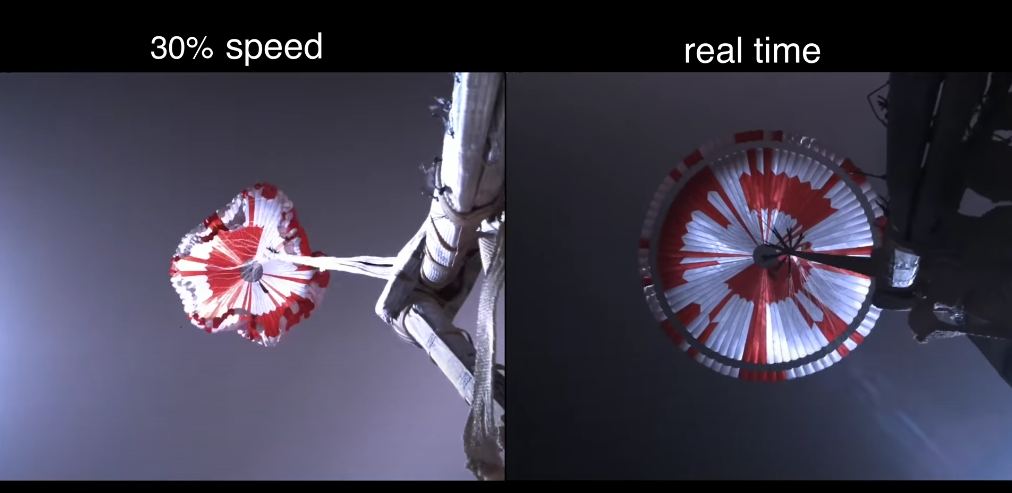
NASA’s Perseverance rover is practically bristling with cameras. And those cameras were busy during the rover’s breathtaking descent to the Martian surface. Now NASA has released images and videos of the blessed event.
Continue reading “Watch Perseverance Land on Mars. Mind…Blown”Perseverance has Landed. Here are its First Pictures From the Surface of Mars
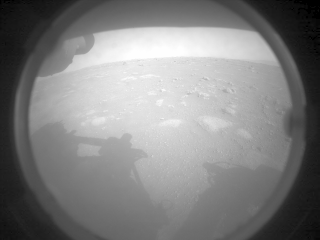
They’ve done it again. After a journey of nearly seven months for the Perseverance rover, the Navigation and Entry, Descent and Landing teams successfully guided their intrepid traveler to a pinpoint landing inside Jezero Crater on Mars on February 18, 2021.
And within minutes of the landing, Perseverance sent back two images from the front and rear Hazard Avoidance Cameras, revealing its surroundings on the Red Planet.
Continue reading “Perseverance has Landed. Here are its First Pictures From the Surface of Mars”
